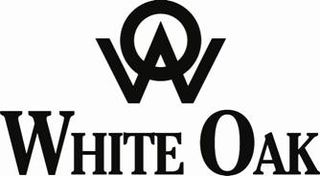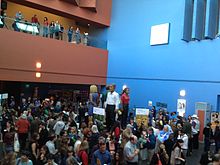The Born Free Foundation is an international wildlife charity that campaigns to "Keep Wildlife in the Wild". It protects wild animals in their natural habitat, campaigns against the keeping of wild animals in captivity and rescues wild animals in need. It also promotes compassionate conservation, which takes into account the welfare of individual animals in conservation initiatives. Born Free also creates and provides educational materials and activities that reflect the charity's values.

Trophy hunting is a form of hunting for sport in which parts of the hunted wild animals are kept and displayed as trophies. The animal being targeted, known as the "game", is typically a mature male specimen from a popular species of collectable interests, usually of large sizes, holding impressive horns, antlers, furs or manes. Most trophies consist of only select parts of the animal, which are prepared for display by a taxidermist. The parts most commonly kept vary by species, but often include head, hide, tusks, horns, or antlers.

The International Fund for Animal Welfare (IFAW) is one of the largest animal welfare and conservation charities in the world. The organization works to rescue individual animals, safeguard populations, preserve habitat, and advocate for greater protections. Brian Davies founded IFAW. IFAW was instrumental in ending the commercial seal hunt in Canada. In 1983 Europe banned all whitecoat harp seals products. This ban helped save over 1 million seals. IFAW operates in over 40 countries.

Wildlife Warriors, originally called the Steve Irwin Conservation Foundation, is a conservationist organization that was established in 2002 by Steve Irwin and his wife Terri, to involve and educate others in the protection of injured, threatened or endangered wildlife. Terri is still involved in the organization as patron and significant advisor.

Namibia is one of few countries in the world to specifically address habitat conservation and protection of natural resources in their constitution. Article 95 states, "The State shall actively promote and maintain the welfare of the people by adopting international policies aimed at the following: maintenance of ecosystems, essential ecological processes, and biological diversity of Namibia, and utilization of living natural resources on a sustainable basis for the benefit of all Namibians, both present and future.".

Save the Elephants (STE) was founded in 1993 by Iain Douglas-Hamilton. A research & conservation organization, Save the Elephants (STE) is a UK-registered charity headquartered in Nairobi with its principal research station in Samburu National Reserve in northern Kenya.
Felidae Conservation Fund (FCF) is a California-based non-profit organization dedicated to preserving wild cats and their habitats. The organization supports and promotes international wild cat research and conservation by collaborating on field research projects, partnering with other environmental organizations, and developing community outreach and education programs.

Wildlife Alliance is an international non-profit forest and wildlife conservation organization with current programs in Cambodia. It is headquartered in New York City, with offices in Phnom Penh. The logo of the organization is the Asian elephant, an emblematic species and the namesake for the Southwest Elephant Corridor that Wildlife Alliance saved when it was under intense threat of poaching and habitat destruction in 2001. It is today one of the last remaining unfragmented elephant corridors in Asia. Due to Government rangers' and Wildlife Alliance's intensive anti-poaching efforts, there have been zero elephant killings since 2006. Dr. Suwanna Gauntlett is the Founder and Chief Executive Officer of Wildlife Alliance, and one of the original founders of WildAid. The organization is governed by a board of directors and an international advisory board that provides guidance on strategy, fundraising, and outreach.
Tusk Trust is a British non-profit organisation set up in 1990 to advance wildlife conservation across Africa. The charity funds the protection of African elephant, African rhinoceros and African lion, along with many other threatened species across Africa. Tusk’s mission is to amplify the impact of progressive conservation initiatives across Africa.

The International Elephant Foundation (IEF) is a non-profit 501(c)(3) corporation. Formed by individuals and institutions, IEF is dedicated to the conservation of African and Asian elephants worldwide.
The African Wildlife Foundation (AWF) is an international conservation organization dedicated to the preservation of Africa's wildlife and wild lands. AWF aims to protect the continent's wild lands as well as its wildlife and natural resources.

White Oak Conservation, which is part of Walter Conservation, is a 17,000-acre (6,900 ha) conservation center in northeastern Florida. It has long been dedicated to the conservation of endangered and threatened species, including rhinoceros, okapi, bongo antelope, zebras, dama gazelles, and cheetahs.

The Tswalu Kalahari Reserve is a privately owned game reserve in the Northern Cape, South Africa. It is South Africa's largest private game reserve, covering an area of over 111,000 hectares.

Spectacled Bear Conservation (SBC) is a team of researchers and conservationists working to study and protect the endangered spectacled bear, also known as the Andean bear. Spectacled bears are the only surviving species of bear native to South America, and the only surviving member of the subfamily Tremarctinae, the short-faced bears. Their range is the Andean Mountains from Venezuela to Chile.

Smart Parks is a UK-based charity that specializes in providing aerial surveillance and monitoring services through the use of unnamed aerial vehicles (UAVs), commonly knowns as drones. The organization was founded in 2012 and launched publicly in 2013, and operates as a registered charity in the UK and a private foundation in the Netherlands. The organization was formerly named ShadowView.
Steven R. Galster is an American environmental and human rights investigator and counter-trafficking program designer. Since 1987, he has planned and participated in investigations and remedial programs to stop wildlife and human trafficking and to mitigate corruption and build governance in Asia, Africa, Russia, South America, and the USA.
Resson Kantai Duff is Kenyan conservationist and the deputy director at Ewaso Lions.
Nguyễn Văn Thái is a Vietnamese conservationist who works to protecting the Critically Endangered pangolin. In 2014, he founded Save Vietnam's Wildlife (SVW), an NGO that has rescued more than 2,125 wild animals from 45 species, including 1,671 pangolins, and rehabilitated and returned over 60% of them back to the wild.













